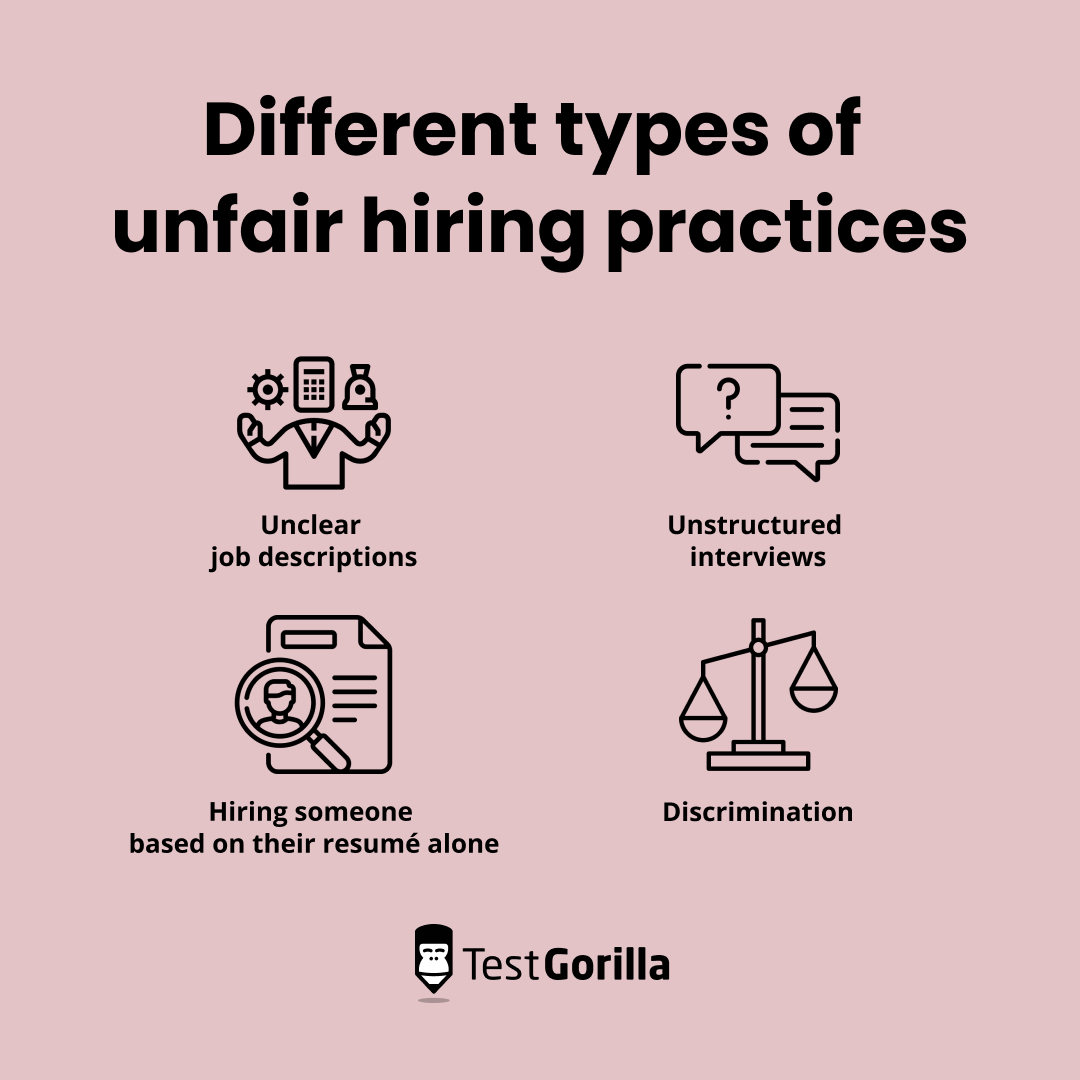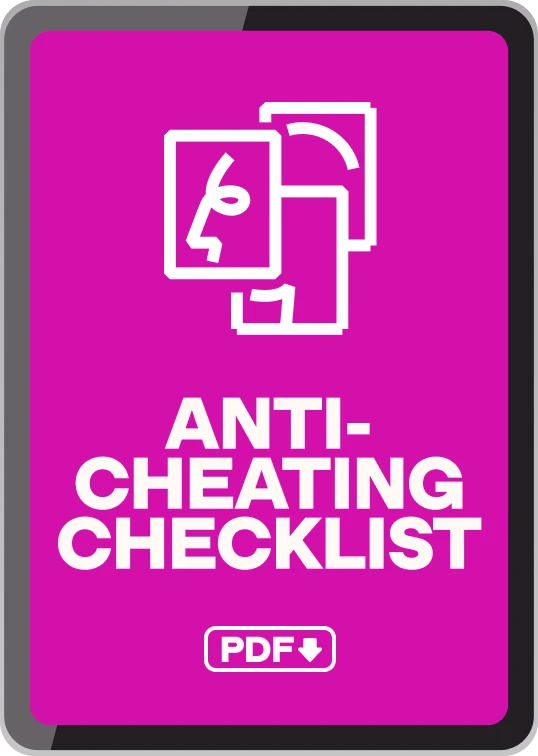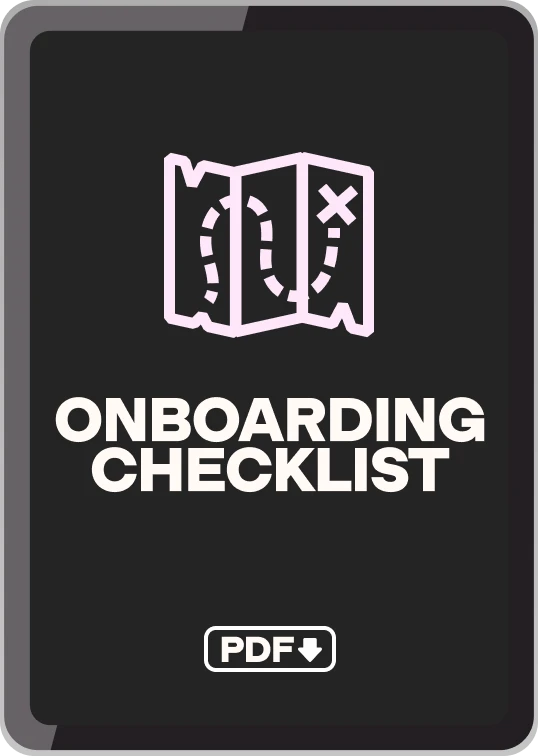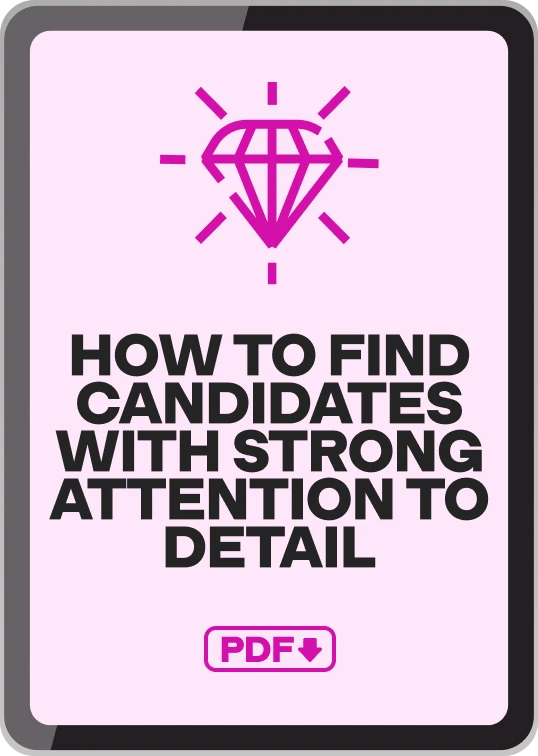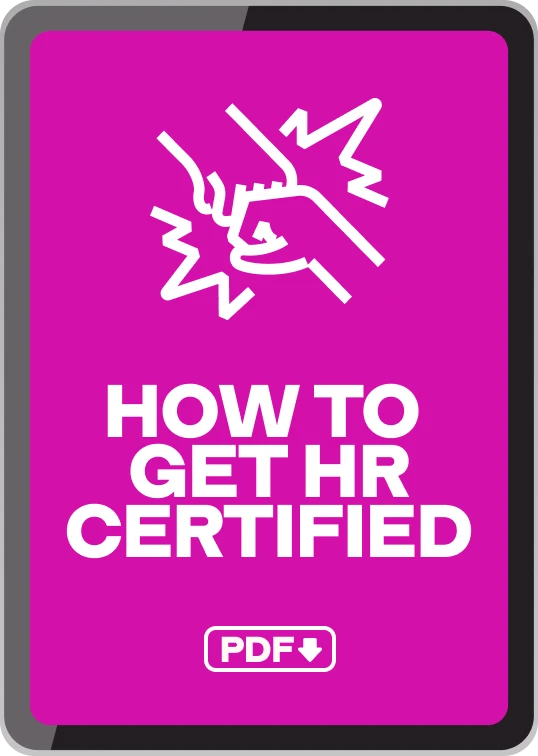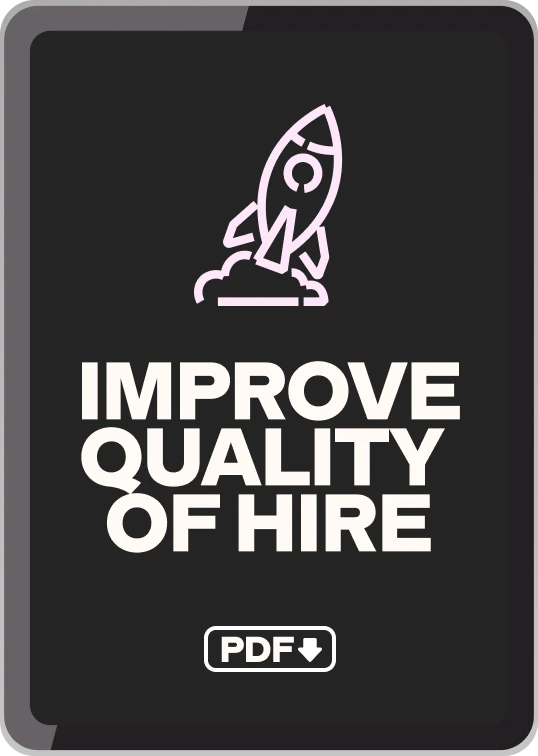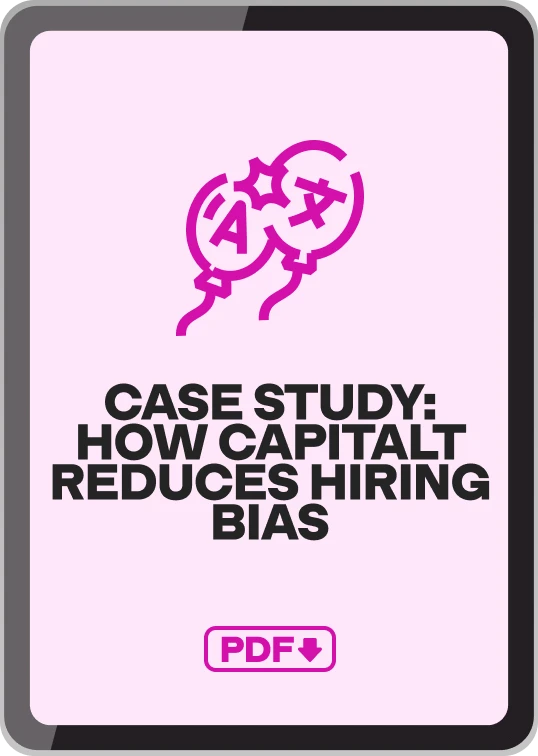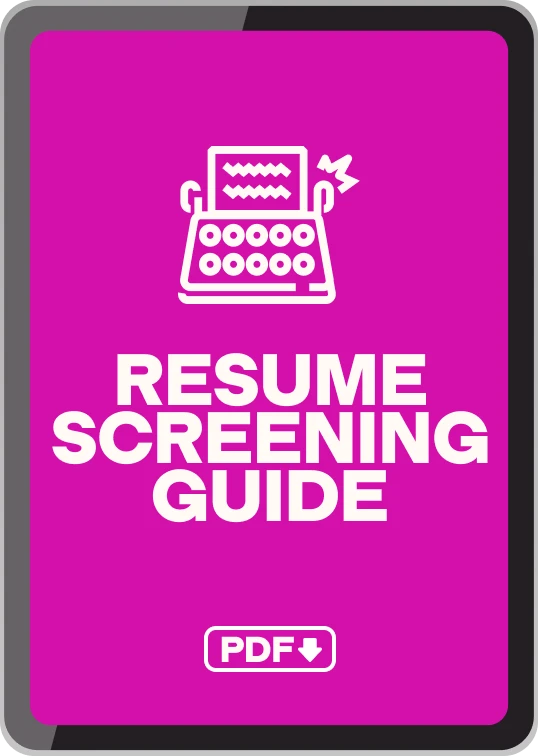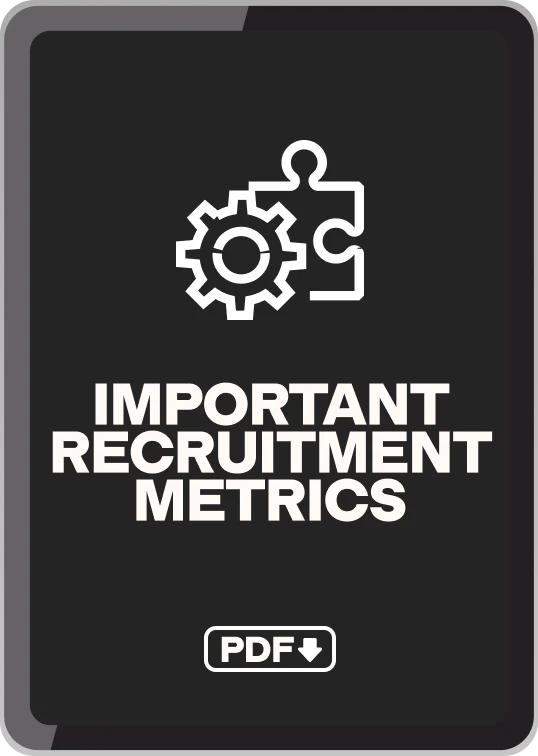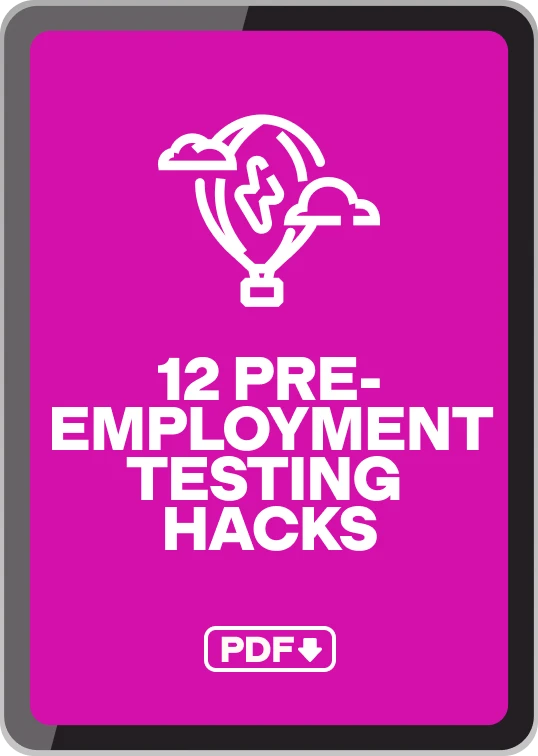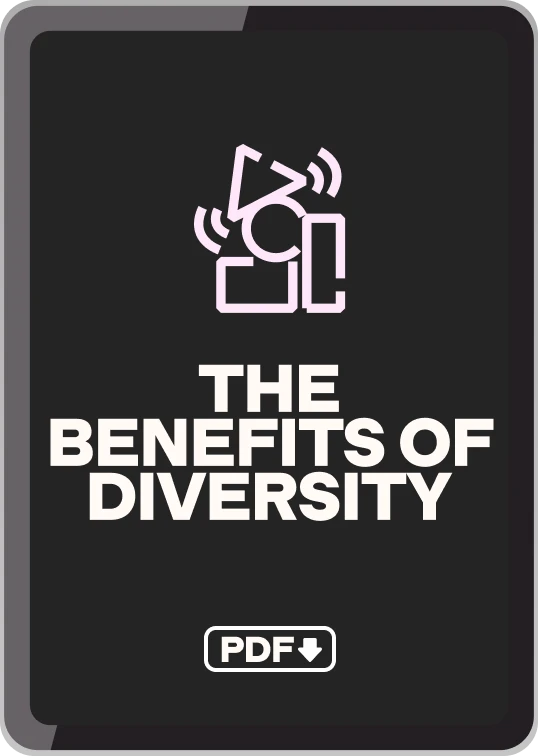How to avoid unfair hiring practices at your organization
Unfair hiring practices are often the result of the unconscious bias of hiring managers. This can lead to hiring a less diverse workforce, which is likely to hurt the company and decrease its competitiveness. We now know that organizations where diversity is a priority are up to 35 percent more likely to perform better than the industry median levels in the US. In addition to that, as a BCG study from 2018 suggests, a diverse leadership boosts innovation: people from different backgrounds have different points of view and can bring a fresh perspective to tough problems.
Because of that, ensuring a fair hiring process is not only the morally right thing to do—it will also make your company more competitive and help you attract top talent.
Not all unfair hiring practices are illegal—many are simply that, unfair, and reduce your chances to hire the best candidates. Discrimination, however, is. In the US, as well as in most other countries, the law prohibits employers from making hiring decisions based on age, ethnicity, gender, sexual orientation, religion, nationality, disability, or other similar characteristics. If your hiring practices result in a disproportionately negative effect on applicants of a given category, candidates can file a discrimination claim.
Even though it’s illegal, discrimination during the hiring process is, unfortunately, still a huge problem, together with other kinds of unfair hiring practices.
Table of contents
Why do unfair hiring practices still exist—and how can they harm your company?
Unfair hiring practices are directly related to interviewer bias. Hiring managers can fall prey to bias and sometimes have unconscious preferences for one candidate over another, based on criteria that are unrelated to the applicant’s skills, knowledge, and performance.
If you decide to hire someone based on their physical appearance, political views, or the college they went to, you’re not being objective about the most important thing a candidate should have: the right skill set for the position you’re looking to fill. This is counterproductive and can lead to bad hiring decisions—and bad hires are very expensive. In fact, they cost companies $15,000 on average—not to mention that the workload of your other employees will increase, which might make you lose some of your best talents. And if your decision is based on ethnicity or religion, for example, this is discrimination. Lawsuits for unfair and illegal hiring practices put at risk not only organizations’ financial status but also their reputation and brand image.
On the other hand, diverse work environments, where fair hiring practices a priority, are more accepting and welcoming, which further reduces employee turnover.
This is why streamlining your hiring process is key. You need to make sure that your hiring practices are fair and objective. Interviewer bias and unfair hiring practices are difficult to get rid of—even if you have the best intentions—and require a more systematic approach.
What are the different types of unfair hiring practices?
Let’s first see what the different kinds of unfair hiring practices are—and then we’ll delve deeper into the measures you can take to avoid them.
Unclear job descriptions
Writing clear job descriptions is an art in itself—and it's among the best hiring practices that hiring managers need to master. Make sure that your descriptions are clear and specific. Be precise—and realistic—about both your requirements and about what the position entails. If you mislead your candidates, for example by making them believe they’re applying for a higher position than the one you’re actually looking to fill, this is unfair to them and will disappoint them. On top of that, it can be harmful to your company: employer brand image is crucial for companies that want to attract the right candidates.
Unstructured interviews
Unstructured interviews and small talk leave a lot of room for biases and can be extremely counterproductive. Just because someone shares the same hobbies as you, or comes from the same part of the country, this doesn’t make them the right candidate for the job. Similarity or confirmation bias can all lead to giving an unfair advantage to someone who is less skilled, simply because you have a personal preference for them. To avoid this, keep small talk to a minimum and do structured interviews. Ask everyone the same series of questions, in the same or in a similar order, and take detailed notes.
Hiring someone based on their resumé alone
If you’re hiring candidates based on experience and education alone, this is unfair to candidates who might be a better fit but have a less impressive resumé. Of course, resumés are important, and help you make an initial selection—but beyond that, you should test your candidates’ skills and knowledge, and make a neutral hiring decision. After all, you’re hiring someone because of the value they can bring to your company, not because of their qualifications on paper.
Discrimination
Discrimination can be related to different candidates’ characteristics, such as age, gender, ethnicity, nationality, sexual orientation, marital status, disability, and more. In all cases, it’s unfair—and illegal. Nevertheless, it still continues to be a major issue: in 2019, there were more than 63,000 charges for racial, sexual, or age-related discrimination were filed in the US—on top of nearly 40,000 charges for retaliation, according to data from the U.S. Equal Employment Opportunity Commission (EEOC).
Make sure to completely eliminate discrimination from your hiring process—and from your workplace in general. Discrimination can have many forms, even after someone is hired. For example, you might not be giving them the same access to resources, promotion opportunities, and information. Discrimination lawsuits can harm your reputation—and are very expensive. Alliant Techsystems, Inc., one of the US’ largest aerospace and defense manufacturers, has paid a compensation of $100,000 to settle a race discrimination lawsuit filed by the EEOC.
How to ensure fair hiring practices at your company?
So, what can you do to make sure your hiring process is 100% fair and gives everyone an equal opportunity to showcase their talent and skills? Let’s look into that.
Write clear, detailed, and inclusive job ads
Make sure your job ads aren’t discriminatory in any way. Make them inclusive. Don’t write them with a specific person in mind—keep an open mind about who the ideal candidate might be. Reduce the use of words that have strong gender associations tied to them, such as “leader” or “dominate”, for example. Make your ads precise and clear, and have realistic expectations. Don’t ask for 5 years of experience for a junior role: that’s another form of unfairness. Good job ads project a positive company image to prospective applicants.
Anonymize resumés when reviewing them
To anonymize resumés and make your pre-selection process fairer, you can hide names and demographic data. This will force you to only review applicants’ experience, education, and certifications—without letting unconscious biases creep in. If you’re using software to screen resumés, you need to keep in mind that algorithms aren’t always completely neutral. In fact, they can exacerbate biases present in the initial datasets they were exposed to. Ask your software provider for more information on that—they’ll be able to explain to you the steps they have taken to ensure the neutrality of their algorithm.
Automate a part of the hiring process and test candidates’ skills
Skills tests, on the other hand, help you be neutral when assessing your candidates’ skills and expertise. You can use tests to evaluate many different skills: from technical, such as debugging in Java, entry-level algorithms in C#, or DevOps knowledge, to language proficiency—for French, Portuguese, or Mandarin, for example—to business judgment and leadership and people management. They give each candidate an equal opportunity to demonstrate their capabilities and give you bias-free data that is easy to analyze. You can also anonymize test results to further prevent bias.
Establish clear hiring criteria and communicate clearly with candidates
Be as clear about your hiring criteria as possible, both within the company and to applicants. Explain your hiring process to prospective candidates, and be specific about your expectations, hiring criteria, and the different steps. Make prompt, efficient communication a priority, and inform disqualified candidates of your decision in a timely manner. All of those steps are crucial if you wish to project a positive employer image to current and future applicants.
Do structured interviews and screening calls
To ensure fair hiring practices, implement a structured interviewing process. Ask all candidates the same questions and make scorecards to document your observations. In addition to that, it’s important to find good ways to assess candidates’ skills during the interview. You can do this by giving them a small practical task, or by asking them to analyze a hypothetical situation and provide a solution. Of course, you shouldn’t be asking candidates to solve any of the actual challenges your company faces: this would amount to free work and is unfair to applicants.
Document your hiring decisions
Document each step of the hiring process and the motivations behind your hiring decisions. This helps you be self-aware of any potential unfairness or unconscious biases and helps you organize the hiring process better. Additionally, by documenting your hiring decisions, you’ll be able to continuously analyze your hiring decisions for fairness and inclusiveness, and improve your process with time.
Do not make the hiring process overly complicated
There’s a difference between being thorough and trying to find a reason to not hire someone. Do not make your candidates jump through countless hoops to disqualify them—that’s unfair and wastes both their time and your resources. Make sure that your hiring process is streamlined and efficient—and identical for everyone.
Educate your hiring team on the importance of having fair hiring practices
Educate your team on hiring biases and make sure everyone understands the need for having a fair and unbiased recruitment process. Everyone who is involved in the hiring process should be aware of the questions they shouldn’t be asking, such as candidates’ age, marital status, where they were born, and so on. Explain the importance of structured interviews and objective skills assessments. Get diverse hiring panels whenever possible, as they significantly improve workplace diversity.
Ask your employees for feedback
Ask your employees for feedback on whether your company is inclusive and treats everyone fairly, both during the recruitment process and afterward. Be open and acknowledge mistakes and shortcomings: employees’ feedback can give you unique insights into your hiring process and the working environment.
Monitor your hiring practices continuously to ensure fairness
Making sure that your hiring process is fair, unbiased, and non-discriminatory takes effort and dedication—and the direct involvement of your company’s leadership, as well. It also requires continuous monitoring and optimization. For this, you need to collect sufficient data and review it often, in order to analyze the hiring and promotion patterns at your organization.
A fair hiring process helps you make better hiring decisions, provide equal opportunities to your candidates, and hire diverse talent—which is why you need to make it a priority.
Recommended reading: How to avoid unfair internal hiring practices + common examples
Related posts
You've scrolled this far
Why not try TestGorilla for free, and see what happens when you put skills first.
Latest posts
The best advice on pre-employment testing, in your inbox.
No spam. Unsubscribe at any time.

Hire the best. No bias. No stress.
Our screening tests identify the best candidates and make your hiring decisions faster, easier, and bias-free.
Free resources
This checklist covers key features you should look for when choosing a skills testing platform
This resource will help you develop an onboarding checklist for new hires.
How to assess your candidates' attention to detail.
Learn how to get human resources certified through HRCI or SHRM.
Learn how you can improve the level of talent at your company.
Learn how CapitalT reduced hiring bias with online skills assessments.
Learn how to make the resume process more efficient and more effective.
Improve your hiring strategy with these 7 critical recruitment metrics.
Learn how Sukhi decreased time spent reviewing resumes by 83%!
Hire more efficiently with these hacks that 99% of recruiters aren't using.
Make a business case for diversity and inclusion initiatives with this data.

